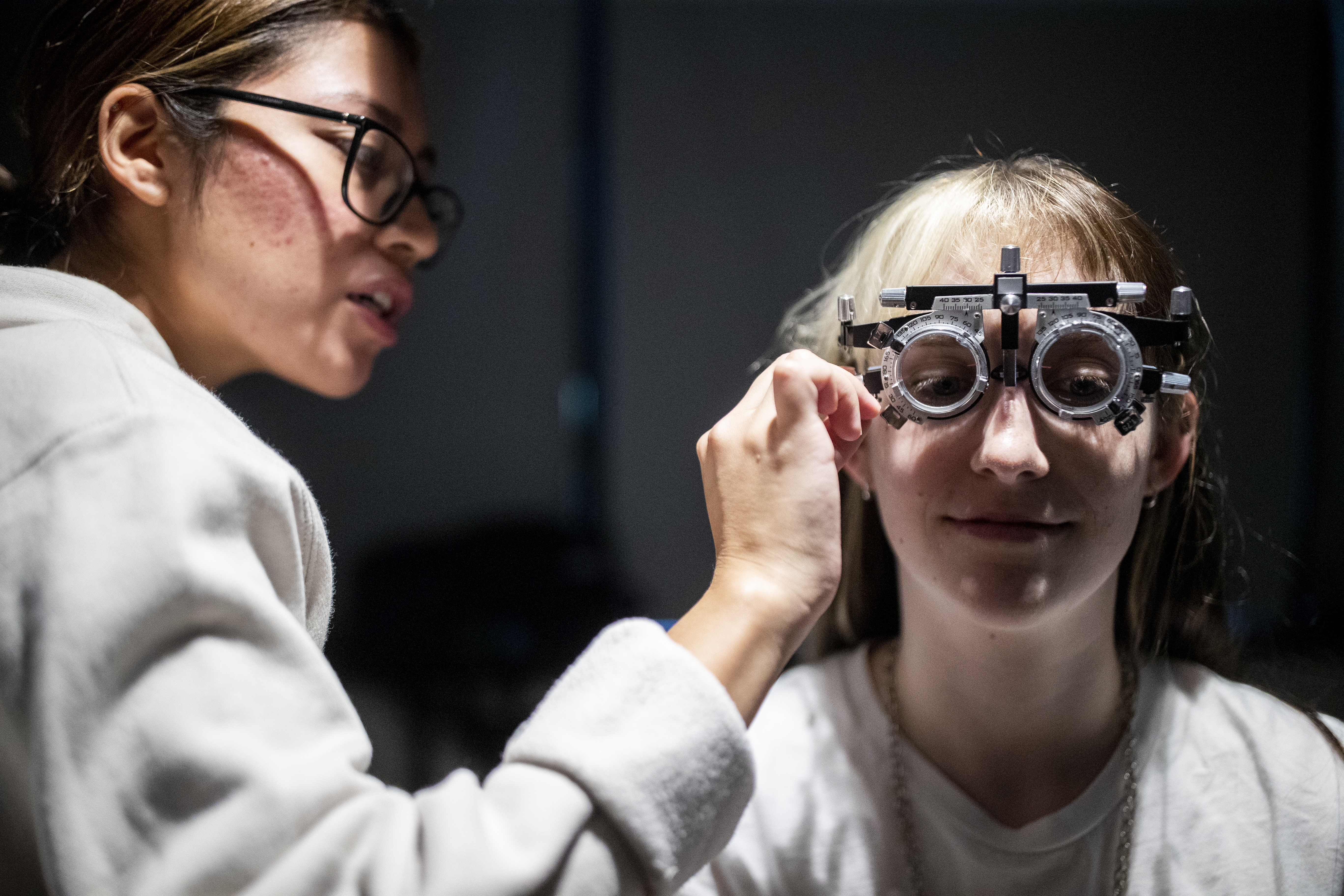How Albinism Affects the Eyes
Albinism is a group of heritable disorders affecting the skin, hair, and eyes, caused by a lack of melanin. While albinism is popularly characterized by very pale skin and hair, the disorder also has a significant impact on the eyes.
Vision issues are considered to be a key factor of albinism diagnosis due to the effects that melanin production has on the eyes. According to the National Organization for Albinism and Hypopigmentation (NOAH), the disorder may cause abnormal development of the retina — back of the eye — and disrupt nerve connections between the brain and eyes which leads to a variety of vision difficulties.
Common vision problems found with albinism:
- Nystagmus — Uncontrollable rapid horizontal eye movements.
- Strabismus — a condition where one eye turns in or out.
- Photophobia — Extreme light or glare sensitivity.
- Refractive eye issues such as astigmatism, nearsightedness (myopia), or farsightedness (hyperopia).
- Poor depth perception — Resulting in a reduced ability to judge the distance of certain objects.
- Optic nerve misrouting — Abnormal nerve pathways from the retina to the brain that can cause decreased vision or poor binocular vision.
- Foveal hypoplasia — Abnormal retina (a tissue inside the eye that receives light) development that results in reduced vision.
 As a result of these issues, many with albinism are being classified as legally blind, however, the NOAH outlines a variety of treatments that can help correct or reduce some of these problems. There are many surgeries that may be recommended to help with symptoms like nystagmus or crossed eyes. Sunglasses, tinted contact lenses, and indoor lamp placement may also help with light sensitivity. Other optical aids such as eyeglasses, magnifiers, digital magnification settings, and bioptic telescopes can further assist with eyesight. The Mayo Clinic also points out the benefits of simple lifestyle accommodations like printing in high-contrast colors, using large-print textbooks, and sitting near the front of classrooms as changes that can aid students or children with albinism specifically.
As a result of these issues, many with albinism are being classified as legally blind, however, the NOAH outlines a variety of treatments that can help correct or reduce some of these problems. There are many surgeries that may be recommended to help with symptoms like nystagmus or crossed eyes. Sunglasses, tinted contact lenses, and indoor lamp placement may also help with light sensitivity. Other optical aids such as eyeglasses, magnifiers, digital magnification settings, and bioptic telescopes can further assist with eyesight. The Mayo Clinic also points out the benefits of simple lifestyle accommodations like printing in high-contrast colors, using large-print textbooks, and sitting near the front of classrooms as changes that can aid students or children with albinism specifically.
With the help of vision therapies and aids, most people with albinism make adaptations to function well in everyday environments and pursue a range of life goals and interests.
Expert optometrists at The Eye Institute (TEI) can provide management and vision rehabilitation for those with albinism. For more information or to book an appointment, call 215.276.6111 or visit here.